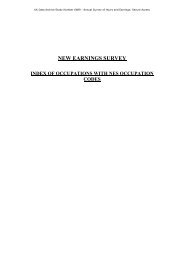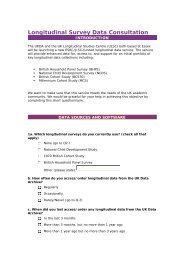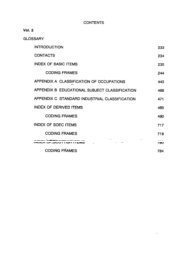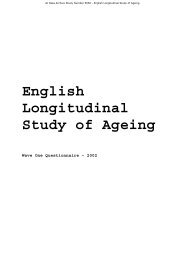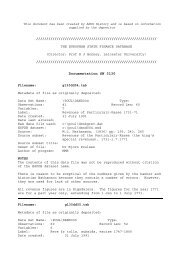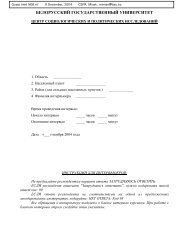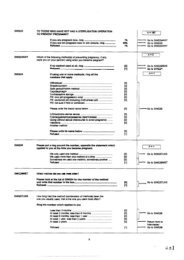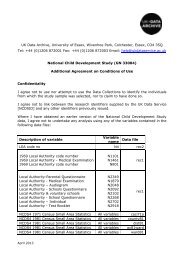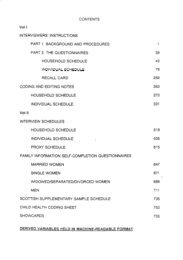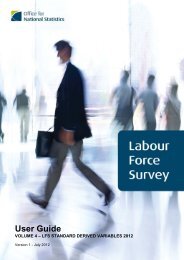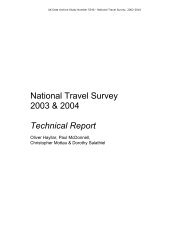The Seven Principles of Public Life - ESDS
The Seven Principles of Public Life - ESDS
The Seven Principles of Public Life - ESDS
Create successful ePaper yourself
Turn your PDF publications into a flip-book with our unique Google optimized e-Paper software.
It was decided to conduct this research in three stages:<br />
• Stage 1 involved exploratory qualitative research, designed as preparatory work for the<br />
national survey. <strong>The</strong> work was carried out by the National Centre for Social Research<br />
in February and March 2002 and was based on focus groups among a total <strong>of</strong> 122<br />
people from six regions in Great Britain. <strong>The</strong> findings <strong>of</strong> the work were published by<br />
the National Centre for Social Research in January 2003 (Graham et al., 2003).<br />
• Stage 2 involved developing and testing questions to be administered in the national<br />
survey. This work was carried out by BMRB Social Research between March and<br />
October 2003.<br />
• Stage 3 was the national survey and was carried out by BMRB Social Research between<br />
November 2003 and March 2004.<br />
Previous research on standards <strong>of</strong> conduct in public life<br />
<strong>The</strong>re is a considerable body <strong>of</strong> research into political attitudes and political trust, both in<br />
this country and internationally, much <strong>of</strong> which covers ground that is relevant to this study.<br />
Important independent sources <strong>of</strong> data in this sphere in the UK include <strong>The</strong> British Social<br />
Attitudes series, which has monitored public opinion in relation to a range <strong>of</strong> political and<br />
social issues since 1983, frequently examining political trust and engagement, and<br />
occasionally exploring standards-related issues, and the British Election Study, which has<br />
been conducted around the time <strong>of</strong> each general election since 1964. <strong>The</strong>re have, however,<br />
been few detailed studies <strong>of</strong> standards <strong>of</strong> conduct in public life prior to this one.<br />
Mortimore (1995) examined sleaze in Britain around the time when the Committee on<br />
Standards in <strong>Public</strong> <strong>Life</strong> was established, when allegations <strong>of</strong> sleaze against the<br />
Conservative administration were at their height; and Dunleavy et al. (2001) reported<br />
findings on public attitudes towards sleaze and the role and duties <strong>of</strong> MPs, among other<br />
topics, drawn from the Joseph Rowntree Reform Trust State <strong>of</strong> the Nation series <strong>of</strong><br />
surveys. More recently, a survey for the Audit Commission (Duffy et al., 2003) explored<br />
trust in public institutions, covering some <strong>of</strong> the areas explored in this research in relation<br />
to police forces, hospitals and local authorities. Each <strong>of</strong> these studies provides useful<br />
comparative data against which to set the findings <strong>of</strong> this study, and reference is made in<br />
the report to findings from previous research where relevant. However, this study<br />
represents the first systematic examination <strong>of</strong> the expectations and perceptions <strong>of</strong> the<br />
general public in relation to the standards <strong>of</strong> conduct <strong>of</strong> senior elected and appointed<br />
public <strong>of</strong>fice holders in Britain.<br />
16 BMRB International Report: Survey <strong>of</strong> public attitudes towards conduct in public life




